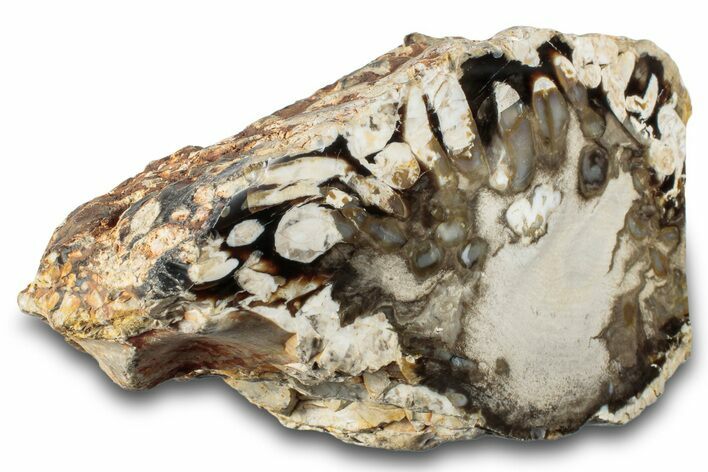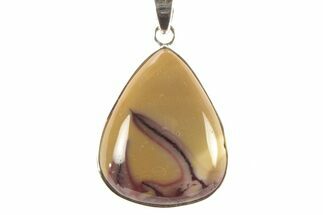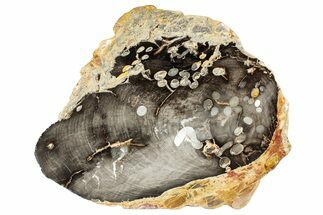7.75" Petrified "Peanut Wood" Section - Australia
This is a 7.75" polished section of petrified wood (Conifer) from Australia, known as "Peanut Wood". It is actually petrified driftwood that is full of boreholes from clam larvae of the genus Teredo, commonly know as shipworms. These boreholes were filled in by a white mineral during the fossilization process, giving this petrified wood its unique appearance. The wood itself is from Aruacaria, a type of conifer and is Lower Cretaceous in age, or approximately 113 million years old.
What Is Petrified Wood
Petrified wood is the name given to wood that has been turned into stone (fossilized) through the process of permineralization. In this process, all of the organic matter becomes replaced by minerals, while much of the original structure, such as tree rings, is retained. For this to happen, the wood needs to be buried in an environment low in oxygen to prevent decomposition and with flowing, mineral-laden water, so minerals may replace structures. The coloration is caused by various minerals that present in that water during fossilization. For example, red colors are due to iron compounds, greens due to copper, and so on.
Petrified wood is the name given to wood that has been turned into stone (fossilized) through the process of permineralization. In this process, all of the organic matter becomes replaced by minerals, while much of the original structure, such as tree rings, is retained. For this to happen, the wood needs to be buried in an environment low in oxygen to prevent decomposition and with flowing, mineral-laden water, so minerals may replace structures. The coloration is caused by various minerals that present in that water during fossilization. For example, red colors are due to iron compounds, greens due to copper, and so on.
$99
SPECIES
Aruacaria sp.
LOCATION
Jacobs Gully, Mooka Station, Western Australia
FORMATION
Windalia Radiolarite Formation
SIZE
7.75 x 4.05", up to 2.9" thick
CATEGORY
SUB CATEGORY
ITEM
#260775
We guarantee the authenticity of all of our specimens.
 Reviews
Reviews











